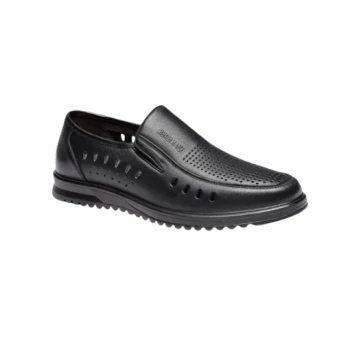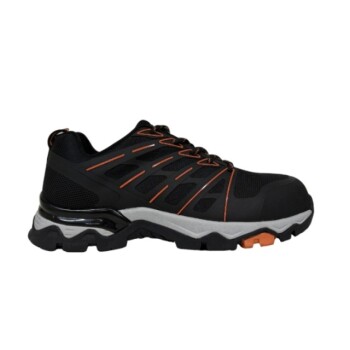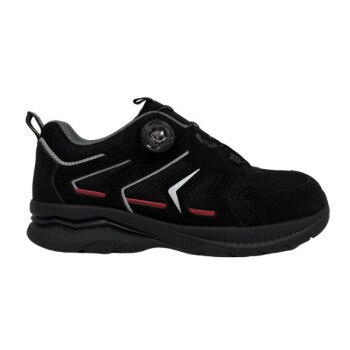Your footwear is the anchor of your business casual attire. It is arguably the single most important element because it has the power to either validate the professionalism of your entire look or completely undermine it. The right pair of shoes elevates an outfit, while the wrong choice can make even the sharpest clothing appear careless and unprofessional.
The core principle to understand is that shoes are a non-verbal signal of intent and attention to detail. In a business casual setting, your footwear is what solidifies the "business" aspect, ensuring the "casual" doesn't translate to "sloppy."
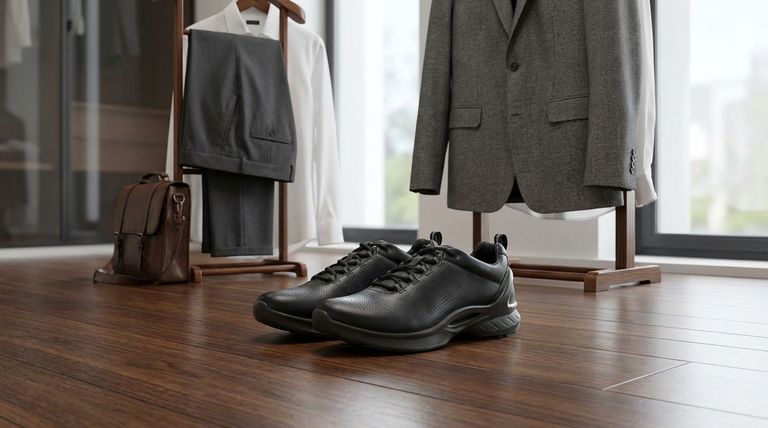
Why Your Shoes Command So Much Attention
Footwear serves as the visual foundation for everything you wear. It’s often one of the last things someone notices, which means it leaves a lasting impression about your judgment and self-awareness.
The Grounding Element of Your Outfit
Think of your outfit as a statement. Your shoes are the final punctuation mark. A well-chosen pair provides a solid, intentional base that makes the entire look feel cohesive and purposeful.
A Clear Signal of Professionalism
Polished, well-maintained, and appropriate shoes communicate that you are detail-oriented. Conversely, scuffed, dirty, or overly casual shoes can send an unintentional message of carelessness, regardless of how well-dressed you are otherwise.
The Key to Balancing "Business" and "Casual"
The business casual dress code exists on a spectrum. Your shoes are what determine where you land on it. A pair of chinos and a button-down shirt can lean formal with leather loafers or more relaxed with clean, minimalist trainers. Your footwear sets the tone.
Decoding Appropriate Business Casual Footwear
The goal is to find shoes that are more formal than a typical gym sneaker but less rigid than a formal oxford. The key is a clean silhouette and quality materials.
The Classic Leather Options
Styles like loafers, derbies, chukka boots, and Chelsea boots are the cornerstones of business casual. They are universally accepted because their structured shape and leather construction inherently convey professionalism.
The Rise of the Smart Trainer
In many modern workplaces, a minimalist leather trainer (or sneaker) is perfectly acceptable. These are not your running shoes. They are defined by clean lines, premium materials (like leather or suede), minimal branding, and neutral colors like white, black, or navy.
Material and Color Matter
Leather is the default for a reason; it's durable and looks professional. Suede is an excellent, slightly more relaxed alternative. Sticking to classic colors like black, brown, tan, and navy ensures versatility and timelessness.
Common Pitfalls to Avoid
Choosing the wrong shoes is the fastest way to miss the mark. Understanding these common mistakes is crucial for maintaining a polished appearance.
Mistaking "Casual" for "Any"
The most frequent error is wearing footwear that is purely casual. This includes athletic running shoes, hiking boots, sandals, flip-flops, or any visibly worn-out sneakers. These items break the professional frame of the outfit.
Ignoring Your Office Context
"Business casual" is not a single, universal standard. The acceptable footwear in a creative agency will differ from that in a corporate finance department. Always observe what senior, well-respected colleagues are wearing to calibrate your own choices.
Neglecting Shoe Maintenance
Even the most expensive and appropriate shoes will look unprofessional if they are dirty, scuffed, or in disrepair. Regularly cleaning and polishing your shoes is a non-negotiable part of a business casual wardrobe.
Making the Right Choice for Your Goal
Select your footwear based on the environment you're in and the impression you want to make.
- If your primary focus is a traditional or conservative office: Stick to classic leather derbies, loafers, or Chelsea boots in dark brown or black.
- If your primary focus is a modern or creative workplace: You have the flexibility to incorporate clean leather trainers or suede chukka boots.
- If your primary focus is all-day comfort without sacrificing polish: Look for high-quality loafers with cushioned insoles or supportive dress-sneaker hybrids from reputable brands.
Ultimately, choosing the right footwear is a direct investment in your professional credibility, ensuring your appearance is as sharp as your work.
Summary Table:
| Footwear Type | Key Characteristics | Ideal For |
|---|---|---|
| Classic Leather (Loafers, Derbies) | Structured shape, polished finish | Traditional & Conservative Offices |
| Smart Trainer | Clean lines, premium materials, minimal branding | Modern & Creative Workplaces |
| Chukka/Chelsea Boots | Versatile, durable leather/suede | Balancing comfort and professionalism |
Elevate Your Professional Footwear Collection with 3515
As a large-scale manufacturer, 3515 produces a comprehensive range of footwear for distributors, brand owners, and bulk clients. Our production capabilities encompass all types of shoes and boots, from classic leather loafers and derbies to modern smart trainers, ensuring you have the right styles to meet the demands of any business casual environment. We combine quality materials, expert craftsmanship, and scalable production to deliver footwear that builds professional credibility.
Contact us today to discuss your footwear needs and discover how we can enhance your product line.
Visual Guide
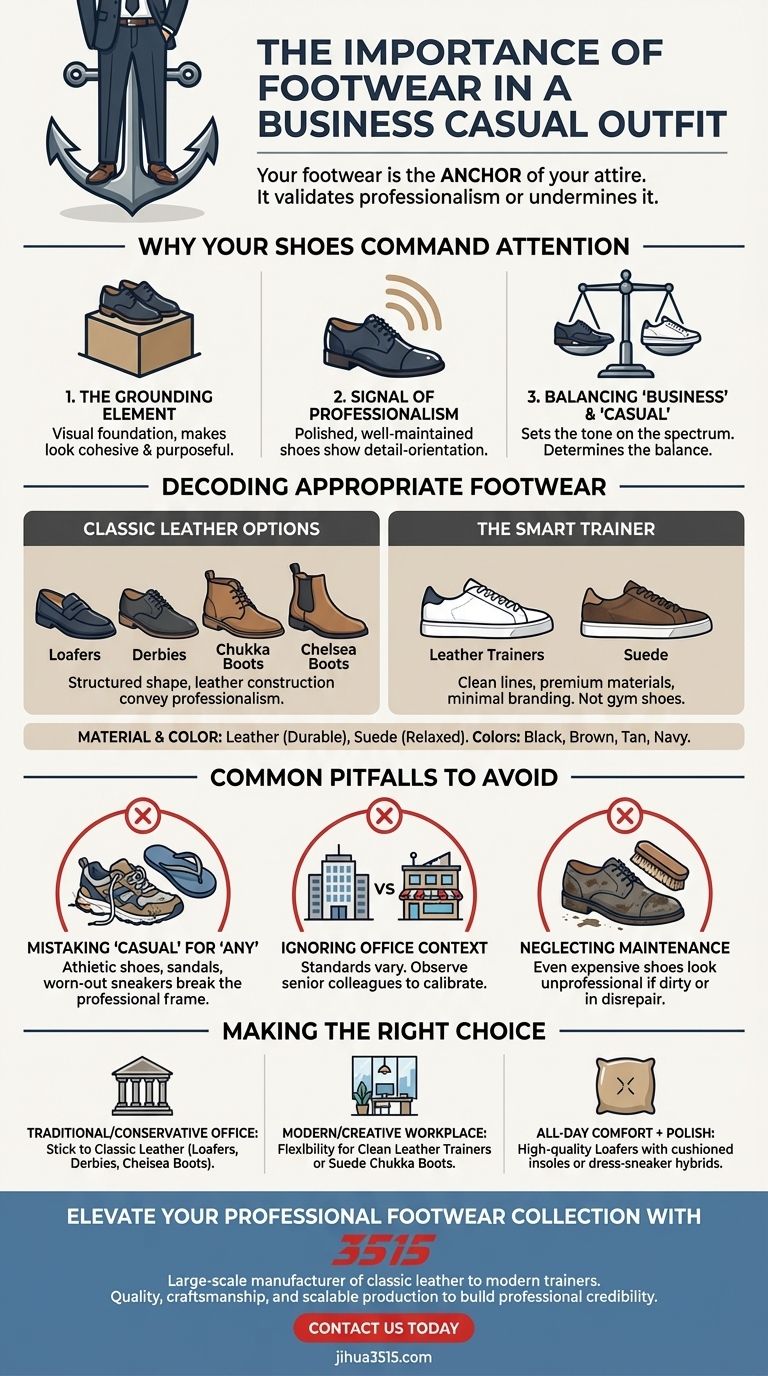
Related Products
- Wholesale Comfortable Business Casual Shoes Custom Manufacturing
- Custom Manufactured Air Cushion Leather Business Shoes for Wholesale
- Wholesale Modern Business Shoes with Dial Closure System for Bulk Orders
- Dial Closure Leather Business Casual Shoes for Wholesale & Private Label
- Wholesale Breathable Perforated Slip-On Loafers Custom Manufacturing
People Also Ask
- How do big-name designers impact casual dress shoe trends? The Innovators Behind Your Style
- How are desert boots categorized in terms of style? A Guide to Smart Casual Footwear
- What are some casual outfit ideas for chukka boots? Master Versatile Style for Any Occasion
- What makes the Clarks Desert Boot suitable for a back-to-basics wardrobe? Unlock Effortless Style & Versatility
- How are casual shoes durable? Achieve Long-Lasting Comfort and Style
- How can desert boots be styled for a smart casual look? Master the Balance of Relaxed and Refined
- What are the most popular shoe choices for business casual? Loafer, Oxford, or Dress Boot?
- Why did the Desert Boot become popular among British troops? A Lesson in Functional Design




